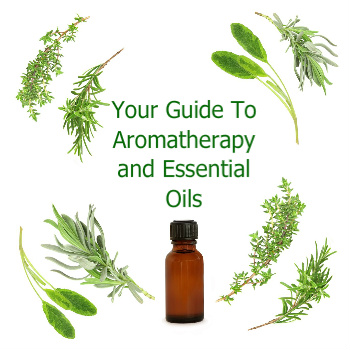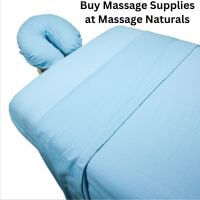- Home
- Guide for Essential Oil Use
As an affiliate for Bookshop, Amazon, and other programs, I may earn a small commission for products purchased through links. This doesn't affect the price you pay. Privacy policy and disclosures.
Search this site:
FAQs and Starting Guide for Essential Oil Use
This guide for essential oil use gives you information related to aromatherapy and essential oils, how they work, how to use them, and more.
FAQ Guide for Essential Oil Use
What is aromatherapy?
Aromatherapy uses essential oils to promote health and well-being of the mind, body, and spirit. You will come across various definitions—for detailed discussions, see the "What is Aromatherapy" articles at AromaWeb and the Tisserand Institute.
Although aromatherapy implies that beneficial effects result from the scent, essential oils also work through other channels. See How Does Aromatherapy Work? You might also be interested in the History of Aromatherapy.
What is an essential oil?
Essential oils (sometimes inaccurately called aromatherapy oils) are concentrated liquid extracts made from plants. Depending on the specific plant, essential oil may be produced from the flowers, leaves, seeds, bark, roots, resin, or wood. For information about resins, see Plant Resin Used in Aromatherapy.
The word "essential" comes from "essence," as in the essence of the plant. For the plants, the components of these oils provide natural defenses against disease and pests. These components also have beneficial effects for people.
Unlike fatty oils (used as carrier oils), essential oils are volatile, that is, they are not "oily" and do not leave behind oil stains. However, some brightly colored oils, such as german chamomile, blue tansy, or turmeric can cause a color stain.
What do essential oils do? Each essential oil has a unique combination of chemical components and energetic properties that give the oil its own scent, properties, and benefits. See profiles of essential oils.
Are essential oils safe?
Used properly and according to accepted essential oil safety guidelines, most authentic* essential oils are safe for most people most of the time. However, remember, anyone can have a bad reaction to anything.
To use essential oils safely, learn about the ones you want to use and be aware of any cautions or contraindications. Seek professional advice if in doubt.
When using essential oils on the skin, properly dilute them in an aromatherapy carrier oil. See this essential oil dilution chart for guidelines.
For more safety information, see:
- Essential Oils and Pregnancy
- Essential Oils for Babies
- Essential Oils for Children
- Epilepsy and Essential Oils for information about using aromatherapy if you have epilepsy
*Adulteration is a big problem in the essential oil industry. Adulteration means something has been added to the oil that wasn't present when the oil was extracted from the plant. Oils are often adulterated to make them less expensive. See Essential Oil Adulteration Explained at AromaWeb.
Do aromatherapy and essential oils work?
Scientific studies are limited and incomplete, though you can find studies that support the efficacy of specific essential oils for specific uses.
Many people report receiving benefits from using aromatherapy and essential oils. But what works for one person may not work for you. As Robbie Zeck, ND, writes in The Blossoming Heart, "The way we relate to a particular essential oil is a function of our physiology, experiences and value systems, so it is important to allow for variation in the way that we each may respond."
Aromatherapist Kurt Schnaubelt explains further in The Healing Intelligence of Essential Oils:
"If you lived in Australia a thousand years ago, for example, ... you used tea tree and eucalyptus and other native herbs for your health concerns. If you lived in Haiti, you used vetiver. If you lived in France, lavender was your go-to solution. Same with Italians and citrus plants like bergamot and lemon... With this in mind, remember that there is no slam-dunk essential oil that is going to work the same way for everyone. We all have a unique road to healing, and you can quite possibly use different oils to achieve the same results."
What is the shelf life of essential oils? Do they expire?
Although pure essential oils don't go rancid in the way that fatty oils do, essential oils can oxidize and deteriorate over time, gradually losing their aroma and therapeutic value. Many factors affect the shelf life of an essential oil, including how it was distilled, the quality of plant material used, the care used by the suppliers in bottling, storing, and handling the oil, and how you store the oil after receiving it.
See this detailed information on shelf life from aromatherapy expert Robert Tisserand.
Can I make essential oil at home?
It's possible, with the correct knowledge, equipment, and plant material. You need an essential oil distiller, either purchased or homemade. How to Make Essential Oil has instructions for how to produce a small amount of essential oil along with essential oil hydrosol using a homemade still.
However, do not confuse making an essential oil with making an infused oil. You make an infused oil by soaking plant material in a fatty oil. I've seen websites claim to tell you how to make an essential oil but the instructions are clearly for an infused oil. Beware!
Any tips for choosing an essential oil diffuser?
See Types of Aromatherapy Diffusers for descriptions and pictures of different types of essential oil diffusers.
Are there specific essential oils for men and women?
Women and men can use all essential oils. For specific gender-related uses, see Essential Oils for Women and Essential Oils for Men.
How can I find a qualified aromatherapist?
To find a qualified aromatherapist, ask about the person's training, experience, liability insurance, and what you can expect from each session. Also, know what you want from your consultations and determine if you feel comfortable with the aromatherapist. A qualified aromatherapist will ask about your health and medical conditions to make sure the suggested essential oils are appropriate for you.
Aromatherapy certification is not required to practice aromatherapy in the United States. Plus, no organizations exist that confer any type of official certification. However, a number of educational programs offer a completion certificate that confers an unofficial certification.
A Registered Aromatherapist (RA) has passed an exam given by the Aromatherapy Registration Council.
See the NAHA-approved school directory that includes schools that meet standards set by the National Association for Holistic Aromatherapy. For training in Canada, see the Canadian Federation of Aromatherapists.
For self-education, see recommended essential oils books.
Buy essential oils: Aromatics International or Rocky Mountain Essential Oils.
Image Source: 123RF Stock Photo

